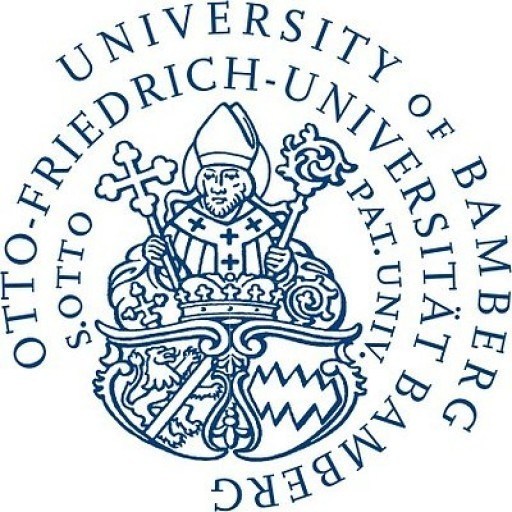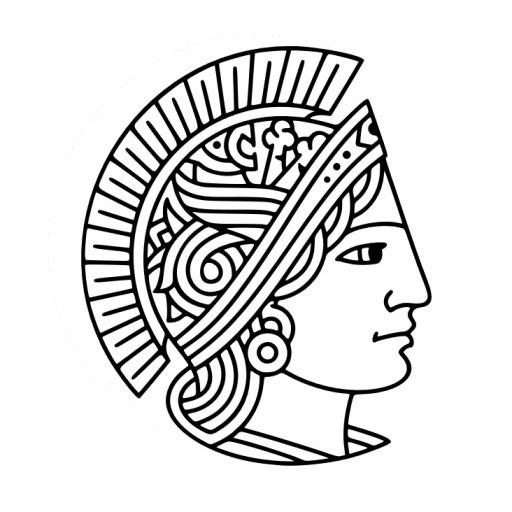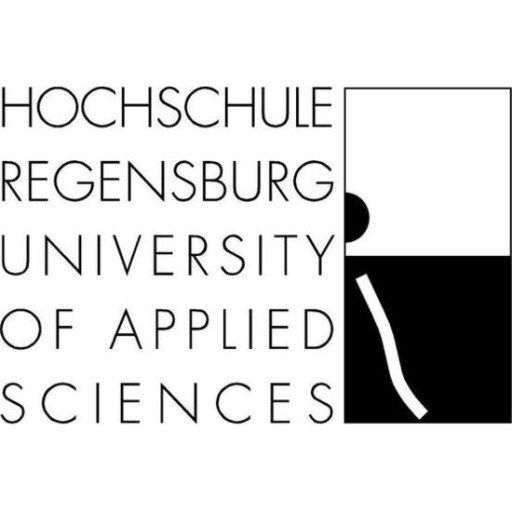Software is the driving fabric behind many of the technological advances that enrich our everyday lives at home, at work and in public. More and more important tasks in government administration, industrial production, health care, public transport, etc., are put into the "digital hands" of mobile and networked computer systems. The underlying software must be extremely reliable and constructed according to the highest standards.
The Master's degree programme in International Software Systems Science enables you to specialise in all tasks required for analysing, designing and developing large, networked software systems with innovative methods. The programme is informed by current trends in industry and research, and relays advanced knowledge on the architecture, development and analysis of modern software by teaching state-of-the-art techniques and methods in complex software engineering for distributed and mobile software systems.
The Master's degree programme imparts a broad variety of expert foundational knowledge and helps you gain insights into several application domains. Regarding foundations, the modules cover advanced software engineering methods, state-of-the-art networked, distributed and mobile software technologies, as well as novel techniques for analysing and verifying complex software. The application domains dealt with in the programme range from IT management, energy-efficient systems, smart environments, human-computer interaction and cognitive systems to computing in the cultural sciences and social networks.
We offer a large number of elective modules so that you can individualise your studies according to your interests. You can choose to specialise in one of four focal areas: distributed and mobile systems, software analysis and verification, service-oriented architectures or communication systems and protocols. You will also have the opportunity to work on hands-on projects, either individually or in teams, and to acquire valuable subject-specific English language skills.
Student projects, an optional study abroad period and/or an optional internship in an international context broaden your perspectives, strengthen your team aptitude and help you gain valuable experience. This will equip you with all skills and knowledge necessary to succeed as a highly valued software expert in the dynamic IT industry, or as a skilled researcher in international laboratories in industry or at a university.
The language of instruction throughout the entire programme is English.
The Master's degree programme in International Software Systems Science enables you to specialise in all tasks required for analysing, designing and developing large, networked software systems with innovative methods. The programme is informed by current trends in industry and research, and relays advanced knowledge on the architecture, development and analysis of modern software by teaching state-of-the-art techniques and methods in complex software engineering for distributed and mobile software systems.
The Master's degree programme imparts a broad variety of expert foundational knowledge and helps you gain insights into several application domains. Regarding foundations, the modules cover advanced software engineering methods, state-of-the-art networked, distributed and mobile software technologies, as well as novel techniques for analysing and verifying complex software. The application domains dealt with in the programme range from IT management, energy-efficient systems, smart environments, human-computer interaction and cognitive systems to computing in the cultural sciences and social networks.
We offer a large number of elective modules so that you can individualise your studies according to your interests. You can choose to specialise in one of four focal areas: distributed and mobile systems, software analysis and verification, service-oriented architectures or communication systems and protocols. You will also have the opportunity to work on hands-on projects, either individually or in teams, and to acquire valuable subject-specific English language skills.
Student projects, an optional study abroad period and/or an optional internship in an international context broaden your perspectives, strengthen your team aptitude and help you gain valuable experience. This will equip you with all skills and knowledge necessary to succeed as a highly valued software expert in the dynamic IT industry, or as a skilled researcher in international laboratories in industry or at a university.
The language of instruction throughout the entire programme is English.
Educational organisation
The Master's degree programme builds on a prior six semester Bachelor's degree (180 ECTS) in Software Systems Science or a closely related field of study such as, but not limited to, informatics, computer science, software engineering, and computer engineering. The programme comprises 120 ECTS, which corresponds to a period of study of at least four semesters. Upon successful completion, you will have acquired the minimum 300 ECTS required for a subsequent 3rd cycle post-graduate training following the Bologna scheme.The ECTS credit points in the Master's programme are awarded within the following five thematic module groups:
- Electives in Software Systems Science (30-48 ECTS)
- Electives in Domain-specific Software Systems Science (0-18 ECTS)
- Seminar and Project (12 ECTS)
- Graduate Study Abroad (30 ECTS)
- Master's Thesis (30 ECTS)
Through the choice of elective modules one of the following four areas of specialisation can be formed and documented in your final degree certificate:
- Distributed and Mobile Systems
- Software Analysis and Verification
- Service-oriented Architectures
- Communication Systems and Protocols
Study abroad unit(s)
The MSc in International Software Systems Science enriches your studies through a distinctively international academic or international industrial experience. This is optional and you can do this at several levels of "ambition".In a full study abroad period you complete at least 30 ECTS credit points at a foreign university, e.g., at one of the partner universities of the University of Bamberg. There you may select study modules from the graduate level offerings of the partner institution within the area of software systems science. Pre-arranged through learning agreements these are guaranteed to be credited towards your MSc degree.
Alternatively, or in addition to the international mobility period, you may pursue an internship in a foreign or internationally acting domestic company or research institute that covers topics in the occupational field of software systems science. The international internship has a volume of at least 12 ECTS credit points or 360 working hours.
Internships
Students may conduct an internship of at least 10 weeks, or 360 working hours, which obtains 12 ECTS credit points towards the study programme. The faculty's Career & International Centre will assist students getting in contact with suitable companies, writing internship application letters and provide mentoring during their internship period.Forms of assessment
Examinations take various forms, depending on the objectives and teaching format of the modules. These may include written and oral exams, seminar papers, take-home assignments, presentations and group work. The particular form of assessment and detailed exam regulations are specified for each module at the beginning of the semester.Depending on the type of module, three, six or nine ECTS credit points are typically awarded. The exams are typically scheduled after the end of the semester. You may take and/or resit a module's exam every semester even if the module is not delivered during that semester.
Course objectives
This graduate-level degree programme allows you to specialise in those modern aspects of computer science that are necessary for analysing, designing and developing complex, distributed and mobile software systems. At the end of your studies, you will be proficient in state-of-the art methods, languages and tools for engineering networked software, for checking the correctness, performance and quality of software, and for solving architectural software problems creatively.Over and above your excellent subject knowledge gained during your studies, you are trained to take a system-level perspective and to master the technical issues arising from the distribution and mobility of software. With your ability both to think analytically and to create innovative solutions you are ready to enter a thriving international IT job market in Europe and on other continents. With your international language skills and your ability to work efficiently within project teams, you will fulfil key employment criteria of internationally leading companies.
Typical fields of employment are:
- Software development and consultancy: you are responsible for the analysis, planning and realisation of large software projects in IT companies or employed as a consultant in large software consulting firms
- Software architecture: you work as a senior software architect in an IT systems house or a software company, and are responsible for the efficient realisation of IT strategies using modern software engineering methods
- Development and operation of IT infrastructures: you oversee server infrastructures, web portals and cloud services for banks, telecommunications companies or in e-commerce
All modules in our degree programmes are taught in English by experienced, research-active and internationally recognised professors and lecturers. As a result, our programmes will also enable you to engage in subsequent doctoral studies and pursue an academic career.
Language requirements
Applicants must provide proof of their English language proficiency at or above one the following levels, or equivalent: UNIcert II, CEFR B2, IELTS 6.5, TOEFL iBT 90 (internet-based).Academic requirements
Admission to the Master's programme in International Software Systems Science is granted to applicants who have completed at least the equivalent of a three-year (180 ECTS) Bachelor's degree in Software Systems Science or a closely related field at a university or equivalent academic institution of higher education. The qualifying Bachelor's degree must have been passed with a grade of 2.7 or better on the German grading scale (or equivalent).Closely related fields of study for a qualifying Bachelor's degree are typically computer science, software engineering, computer engineering, which must cover at least 117 ECTS credit points worth of modules in mathematical foundations, computer science and software engineering including a Bachelor's thesis in one of these fields or in applied computer sciences.
Enrolment fees
Approx. 80 EUR (The fee includes a semester ticket covering public transport in and around the city of Bamberg.)Costs of living
Approx. 750 EUR per month to cover personal expensesJob opportunities
EU students can take a job while studying at Bamberg. Non-EU students may work for a maximum of 120 days or 240 half-days per year. Employment adding up to more than 120 days requires a work permit.The faculty has no facilities to guarantee students can find a job. Students should not rely on getting a job when budgeting for their stay.
Arrival support
Students will be provided with support via web, e-mail and telephone concerning general information such as visa application, letters of invitation, contacts with embassies, residence permit, health services and insurance policy, logistics and financial services, academic and social life, as well as accommodation.Services and support for international students
Mentoring - students will be assisted by a mentor who provides support and guidance on both academic and social matters.Computing facilities - students will have free access to the internet on campus (computing services, libraries, and departments).
Language - the language centre offers the opportunity to learn German as well as other languages. Intensive German language courses (Deutsch als Fremdsprache) are offered before the start of the semester, as well as semester courses at various levels.
Accommodation
For information on accommodation in Bamberg, seehttps://www.uni-bamberg.de/en/studium/interesse/living-studying-in-bamberg/accommodations-in-bamberg/









